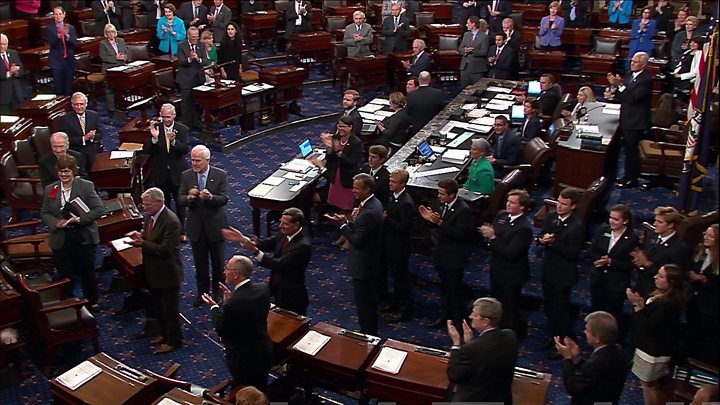The attack on the defense bill
On Monday, September 18, the Senate passed its massive defense bill – the issues of which have been discussed for a while and are fairly controversial. The Senate voted nearly unanimously to pass the bill, the content of which authorizes $700 billion to be spent on the United States military.
This bill is always the largest and most challenging bill, the details of which are hard to iron out, that Congress deals with each year- and this year was no exception. While both parties nearly unanimously voted to approve this bill in a vote of 89 to 8, part of the reason for this bipartisan approval was the fact that it sidelined several important issues relating to the defense department that have been discussed and debated between parties in recent months.
Both transgender troops, who President Donald Trump blocked from entering the military via executive order, and North Korea, whose leader Kim Jong Un has threatened to destroy the United States, were not discussed on this bill. It is likely, however, that legislators will attempt later in the year to combat President Trump on these issues and more.
Senate Armed Services Committee Chairman John McCain has been one of the most outspoken of the Republican senators in combating President Trump, especially with the recent controversy over transgender soldiers in the military. McCain was dissatisfied with the bill when asked about it.
“This legislation is only part of the solution,” McCain said. “We still have no path to actually appropriate the money that we are about to authorize.”
In essence, this means that the Senate cannot ensure that the $700 billion approved goes the way they want it to, for better or for worse.
The only political controversy that was addressed during this time, in fact, was a deadline proposed by Sen. Rand Paul. If included in the defense bill it would have forced Congress to authorize force against terrorist organizations. The Senate voted to kill this proposal. However, the political controversy of Russian hacking, a common worry that outside influence may have affected the results of the 2016 election, was indirectly addressed. A government ban was placed on software from Kaspersky Labs, a Russian firm that is widely suspected to be linked to the hacking that supposedly took place during the election.
At the end of the year, Congress will have to pass another defense bill. It is as of right now unclear what issues will be addressed.

This is my fourth year on the Bagpipe staff.
What is your dream job?
Psychologist
What are you involved with at the school?
President of Video Game Club, Reading Buddies tutor
How would your friends describe you?
Quirky



